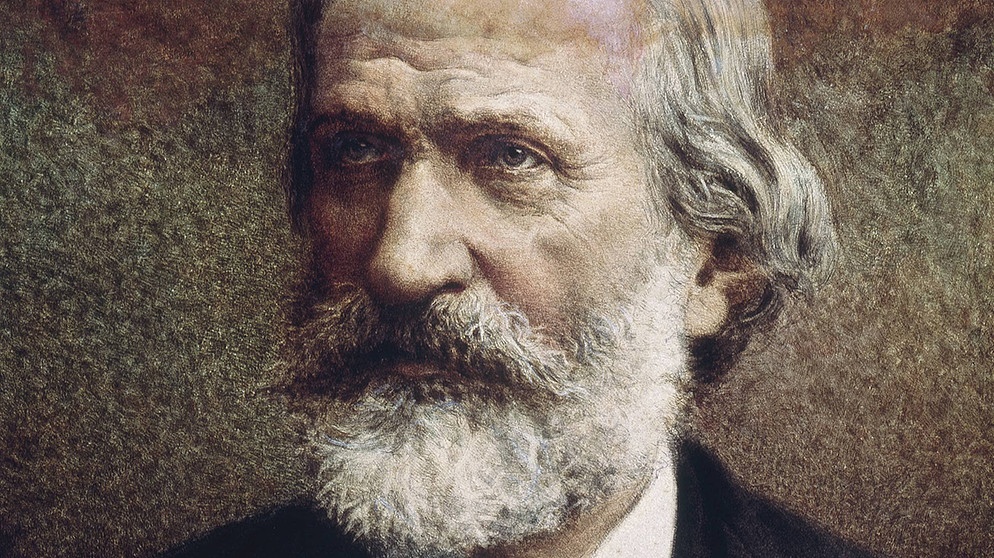Giuseppe Verdi’s “Trovatore” premieres
Crude plot – wonderful music
January 19, 2024 by Michael Atzinger
Rome, January 19, 1853. Giuseppe Verdi’s “Trovatore” premieres. After the triumph of his “Rigoletto,” Giuseppe Verdi spent a long time looking for new opera material. And in January 1853 he wasn’t sure whether he had made the right choice with “Trovatore”: this revenge story is a bizarre nightmare – and the music is a groundbreaking experiment with feelings.
Image source: picture-alliance/akg-images
The calendar sheet to listen to
It’s not even five o’clock in the morning. Verdi slept well, but woke up far too early again. But there is no point in staying there anymore; the thoughts are circling. This has been happening to him more often in the last few weeks. Is it age? He will be 40 this year. He is doing well professionally. He has the infamous “galley years” behind him – and so he took his time with his next project. But at least the sensational success of his “Rigoletto” was two years ago. A tear-jerking father-daughter story.
Wild Spanish revenge crime thriller
And now he’s coming to the music world with “Trovatore”, this wild Spanish revenge thriller about two switched children. The story is bizarre and his librettist Salvadore Cammarano seems overwhelmed. As he writes to him: “Finally, if my suspicion that the piece might not suit you is confirmed, we have enough time to think about another topic. I myself have an idea that I can share with you if you wish. “What I want to submit is something simple and passionate that I think is already ready. If you already have something in mind, let me know.”
The expectations are high
It remains with “Trovatore” – and the problem is solved in a tragic way: Cammarano dies before the libretto is finished. Verdi entrusts the completion to a young colleague. He is gripped by unrest: will the confusing story irritate and annoy his audience? And what will it say to the music? Will everything go well? He knows he has to deliver today; expectations are high.
Verdi is more modern than ever
The celebration of the premiere on January 19, 1853 took away all Verdi’s worries. You are not bothered by the improbability of the plot and its almost impossible to retell history, but rather you are carried away by the never-ending fireworks of musical glories and the truthfulness of the feelings in every note. Verdi is more modern than ever: he breaks up melodic structures rhythmically, works with leitmotifs and, above all, assigns different, complementary tonal spaces to the two women. Above all, he gives the unfortunate Leonora heart-rending tones of mourning: the most delicate melodies, as if spun with silk, sobs set in trills. Her touching lament in the fourth act, shortly before her suicide, does not lead to a cabaletta, as might be expected, but to a choral miserere with a striking effect – without an orchestra, but accompanied by a death knell.
After the “Trovatore” comes the “Traviata”
Less than two months after this triumph, Verdi is upping the ante: his “simple and passionate” drawer project is finished. He must have completed it parallel to the “Trovatore”. And the audience’s tears will flow again – when the Traviata breathes its last.
Il Trovatore Anvil Chorus Met Opera
What happened today
You can also listen to our series “What happened today” on notable events in music history on the radio at 7:40 a.m., 12:30 p.m. and 4:40 p.m. on BR-KLASSIK. You can find more episodes to listen to here.
Broadcast: “Allegro” on January 19, 2024 from 6:05 a.m BR-KLASSIK
2024-01-19 00:15:52
#Giuseppe #Verdis #Trovatore #premieres #Crude #plot #wonderful #music #Discover #classical #music #CLASSIC

